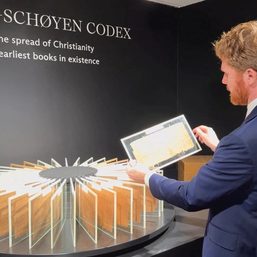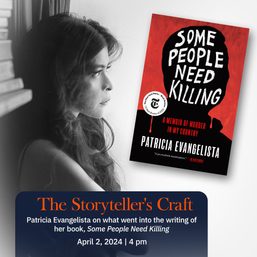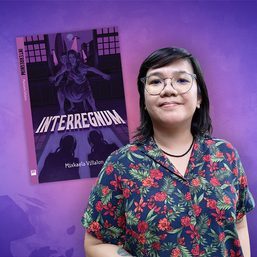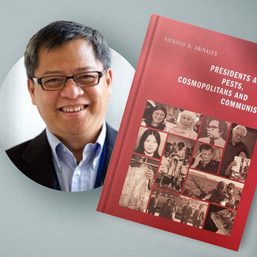SUMMARY
This is AI generated summarization, which may have errors. For context, always refer to the full article.
![[Science Solitaire] How about a flea market of memories?](https://www.rappler.com/tachyon/2023/03/20230325-flea-market-memories.jpg)
What if, instead of a bazaar of things, we had a bazaar of memories? That is, I think, a genuinely sustainable and inclusive marketplace idea.Everyone has memories and there is no need for new stuff or plastic packaging. In that bazaar, there would not be any buying or selling but trading. We will all trade memories. One of my favorite writers, Italian Italo Calvino, had something like this in his book, Invisible Cities. I think we can make this happen in our actual lives now.
There, anyone could go with their “basket” of memories and trade them with others for whatever purpose. Maybe it is for you to reframe your own set of memories so you can move on better with your life. Maybe it is for your own life for which you lack other-colored lenses to see and live it. Maybe it is for you to know that your life is only a speck in an amazing tapestry of human memories but that you are capable of feelings of seeping beyond yourself into that “largeness” which connects us humans. While that bazaar may be imaginary for now, the kind of exchanges and what could happen in those exchanges are known in science – some of it, at least.
One, we know that memories can be positive, negative or neutral in terms of our emotional connection to them. A memory can of course be a mix of things but we humans seem to chunk them in those denominations in our heads. So when I remember a childhood story (my 3rd birthday), I slice them into moments or episodes (I had my first cake/I wore a pink jumper that was designed to have a square hole in the belly part/ icing stuck to my belly) as such because emotions I attach to a moment is some sort of a glue for that moment to stick as a memory (mom got mad at me in front of everyone for being clumsy again/I felt embarrassed and cried.)
Two, sound, smell, and place are more consistent with memories that remind us of dangerous situations. This is why a loud sound is a quick trigger for our being startled, an ordinary smell associated with a traumatic event will cause us to be anxious and an otherwise wondrous place where we once had a terrible fight with someone we once loved will be dull and dark to us. I remember my late husband wanting to revisit places where he had the most terrible memories citing that he wanted to “redeem” them because it was not fair to those places that he remembered them that way.
Three, people generally perceive their lives to be positive in terms of memories and even if they recognize bad memories, the negative feelings associated with those memories fade faster than the positive ones. And more, as we age, positive memories stick to us much more than the negative ones. Mental conditions such as depression and anxiety are, of course, an exception as they cage you in negative memories.
In this bazaar in my head, it is not simply about troves of experience which the marketing world has been abuzz in for its clients. I know many people whose lives run on not just a bucket list but buckets of lists of experiences they want to do before they die. I think they miss two points: We really do everything before we die so everything, not just bucket lists (which ordinarily consists of travel places or risky adventures is only a small part of your life), should count and probably count a lot more. And two, that what you do (input) is nothing without insight – the “now what? Or so what?”. What has changed in you or what do you do after you had the privilege of this experience?
Experience is worthless without insight. Now that I am so much older, I really think my then barely out of their teens parents were so wise in always giving us children down time after “highs” with family and friends. They always seemed to be genuinely curious and asked us what we learned. That and also because our family budget only allowed for sporadic, as they would term in business, “resource-intensive” experiences. We really were told to have lots of time to think and wonder about stuff. Whether our parents just wanted time-out from us three kids or were deliberate about it, it became a habit for me and my two siblings to contemplate our bellybuttons and the universe, in turns. That formed a big part of my memory-making growing up and up to now and even if insight was not always had, meaning-making was always a post-event activity.
I think that some of us are already thinking of the possibilities of trading memories that we embed from our virtual experiences. But I think knowing from studies that our human brains are wired to put down a memory with sensory details as anchors, it might be a different kind of memory for virtual experiences. I will update you as I know more about how this kind of memories stick to our minds.
But for now, I find it so enchanting to think about a bazaar or flea market of memories because of the potential for troves of insight that could change our individual and maybe even our collective lives. It could serve as natural therapies we could give each other as strangers. At the very least, it could serve you and the other, to be reminded that we are, at the finest and fieriest of our cores, essentially the same – heaps of flesh imprinting the arrows of our overlapping lifetimes. – Rappler.com
Maria Isabel Garcia is a science writer. She has written two books, “Science Solitaire” and “Twenty One Grams of Spirit and Seven Ounces of Desire.” You can reach her at sciencesolitaire@gmail.com.
Add a comment
How does this make you feel?
![[Rappler’s Best] Patricia Evangelista](https://www.rappler.com/tachyon/2024/04/unnamed-9-1.jpg?resize=257%2C257&crop=486px%2C0px%2C1333px%2C1333px)




![[FIRST PERSON] Embracing grief](https://www.rappler.com/tachyon/2023/10/IMG-067e8c4bf4fb0b4d6875e7b4ca7635e3-V.jpg?resize=257%2C257&crop=19px%2C0px%2C1195px%2C1195px)
![[Science Solitaire] What is an open mind?](https://www.rappler.com/tachyon/2023/09/what-is-an-open-mind-september-23-2023.jpg?resize=257%2C257&crop=174px%2C0px%2C1080px%2C1080px)

![[Science Solitaire] How is your forgettery?](https://www.rappler.com/tachyon/2023/08/forgettery-August-5-2023.jpg?resize=257%2C257&crop=292px%2C0px%2C720px%2C720px)
![[Science Solitaire] The very surprising thing about what makes you choose good or bad](https://www.rappler.com/tachyon/2023/04/Science-Solitaire-choose-good-bad-April-29-2023.jpg?resize=257%2C257&crop=361px%2C0px%2C720px%2C720px)
There are no comments yet. Add your comment to start the conversation.